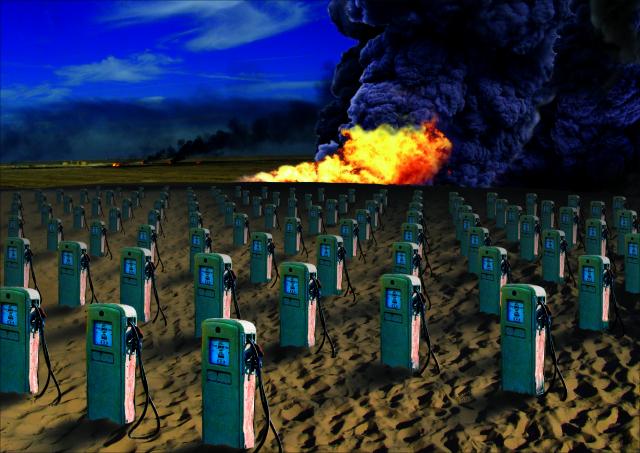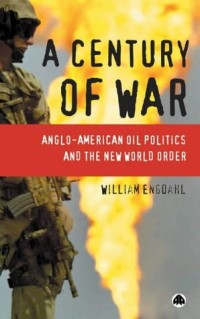The “thirst for oil” is often put forward as a near self-evident explanation behind military interventions in Libya, for instance, or Sudan. Oil, or the lack of oil, is also said to be behind the absence of intervention in Syria now and in Rwanda in 1994.
This of course clashes with the rhetoric around intervention, or its stated goal. No world leader stands before the U.N. and says they’re sending in the tanks because their country needs more oil. Such interventions are usually portrayed as serving directly non-economic goals such as preserving security, supporting democratic values, or more generally promoting human rights.

But this is often met with skepticism and media claims that economic incentives played a key role. Was Iraq really “all about oil?” It’s worth asking whether this viewpoint has some mileage, or if it is instead purely conspiracy theory.
It’s a question we’ve addressed in our research on the importance of oil production in attracting third party military interventions. In a new paper co-authored with Kristian Gleditsch in the Journal of Conflict Resolution, we model the decision-making process of third-party countries in interfering in civil wars and examine their economic motives.
Our research builds on a near-exhaustive sample of 69 countries which had a civil war between 1945 and 1999. About two-thirds of civil wars during the period saw third party intervention either by another country or outside organization.
All about the oil
We found that the decision to interfere was dominated by the interveners’ need for oil – over and above historical, geographical or ethnic ties.

Military intervention is expensive and risky. No country joins another country’s civil war without balancing the cost against their own strategic interests and what possible benefits there are.
We found countries producing lots of oil or those with higher reserves (and considerable market power) were more likely to attract military support. Most often this was to preserve oil prices on international markets. Indeed, there were on average more interventions in periods when there were only a few big oil producing countries and thus reduced competition (and more stable prices).
Such interventions are more likely to be carried out by countries highly dependent on oil imports. The U.S. is the obvious example, but the USSR also fits this pattern – look at its intervention in oil-rich Indonesia in 1958, when Soviet oil production was still in its infancy.
Consider also the U.K.’s military intervention in the Nigerian Civil War, also known as the Biafran War, between 1967 and 1970. At the time, the U.K. was one of the largest net oil importers in the world, as North Sea oil production only started in 1975. The country also had, via BP, a direct interest in the stability of the region. It may seem tempting to attribute U.K. intervention in Nigeria to ties to its former colony. However, the U.K. did not intervene in civil wars in other, less oil-rich former colonies such as Sierra Leone or Rhodesia (later Zimbabwe).
On the flip side, oil-independent nations don’t seem to do much intervening at all. The military aid Saudi Arabia provided to royalists during the civil war in 1960s Yemen is almost unique among the top exporting nations across the period we surveyed. The other Gulf states and regional oil powers such as Mexico or Indonesia have refrained from intervening in civil wars.
Source:
http://www.washingtonpost.com/posteverything/wp/2015/01/28/auto-draft/


.jpg)
Post a Comment